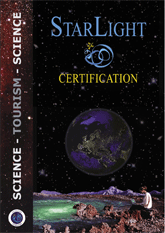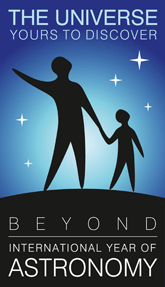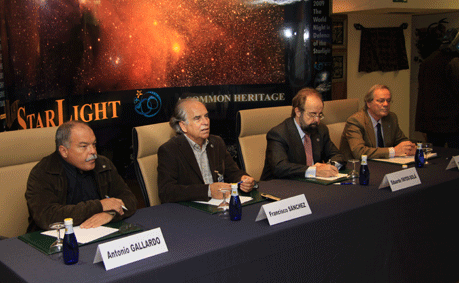
A Common Heritage
The Right to Starlight
 |
| News |
| Refereces - Actions |
| Starlight Reserves |
| Conference 2007 |
| Publications |
| Objectives |
| Starlight Declaration |
| The World Night |
| Home |

The StarLight Tourism |
|
|
PRESS RELEASE UN-WTO, Madrid , 23 December 2009. On the one hand, in this recently opened post-Copenhagen era, it has become suddenly obvious that scientific facts per se will not mobilize political institutions. The outreach of science, its penetration of institutions and civil society have been shown essential. On the other hand, tourism appears both as a victim and a vector of climate change. Irresponsible tourism will contribute more and more to CO2 emissions; in the end a negative backlash could affect tourism activities as whole. But tourism can be an excellent vehicle for new ideas and responsible social behaviour. The right coupage of science and tourism could contribute to the global acceptance of the “new ways”, the “green economy” and the “global sustainable village”. In this framework, the StarLight Certification sets a model for the use of Science both as a resource for tourism and an essential part of sustainable tourism practices. The StarLight Certification indicates that a tourism destination complies with a voluntary standard involving the preservation of nightscapes, including the night sky and the nocturnal bio-systems. Of course it is also concerned with energy conservation and with the use of natural and cultural resources at night time. It is a quality pre-condition for scientific activities in the certified destinations (especially Astronomy): in some cases for professional practitioners, but also importantly, for amateur scientists and students, and for the sensitization of important segments of the general public. Some world-class destinations --in New Zealand, the Pacific, South America and Europe most notably—have already started to develop astronomy and nightscape-based tourism products and attractors. The task is now to set the criteria and the resulting standards for the optimization of this science-tourism experiences. This is the raison-d’être of the StarLight Certification. It aims to ensure the quality of tourism experiences involving the nightscapes, the view of stars and the cosmos and the related scientific, cultural and environmental knowledge. This gives tourism a new dimension, aiming to foster its potential to create, disseminate and internalize knowledge and, especially, the very precious scientific knowledge necessary to guide as all in these times of urgent changes. The StarLight Certification thus evaluates excellence in tourism management processes ensuring customer satisfaction, long-term sustainability and competitiveness and value for the communities, professionals and workers involved, along with night-sky quality and strategies aimed at providing high-ranking scientific knowledge experiences for the visitors and tourists. Tourism governance organizations world-wide with adequate nightscape characteristics and wishing to obtain more information on the StarLight Certification, should address their messages of interest at |
The presentation of the StarLight Certification was carried out by Dr. Francisco Sánchez, Director of the Astrophysics Institute of the Canary Islands Eduardo Fayos-Solà, Executive Secretary of the Education and Science Council, UNWTO-World Tourism Organization, |
|
REQUEST INFORMATION
![]()
certification@starlight-foundation.org
|
Starlight Tourism Certification |
|||
 |
STARLIGHT RESERVES |
|||
 |
CONCLUSIONS AND REPORT Starlight Reserves and World Heritage "The expert meeting recognized that tourism would be an excellent opportunity to promote the Starlight Initiative. The meeting recommended that a framework towards starlight certification devising voluntary standards be prepared including scientific inputs, inputs from the tourism industry and from destinations. UNWTO and UNESCO would provide the institutional support for the operation of such a scientific and tourism quality system". Report (1 MB) |
|||
 |
Astronomy and World Heritage |
|||
IUCN's first step toward preserving natural darkness |
||||
 |
World Heritage Review |
|||
 |
Starlight A Common Heritage International Conference in Defence of the Quality of the Night Sky and the Right to Observe the Stars. Publication |
|||

